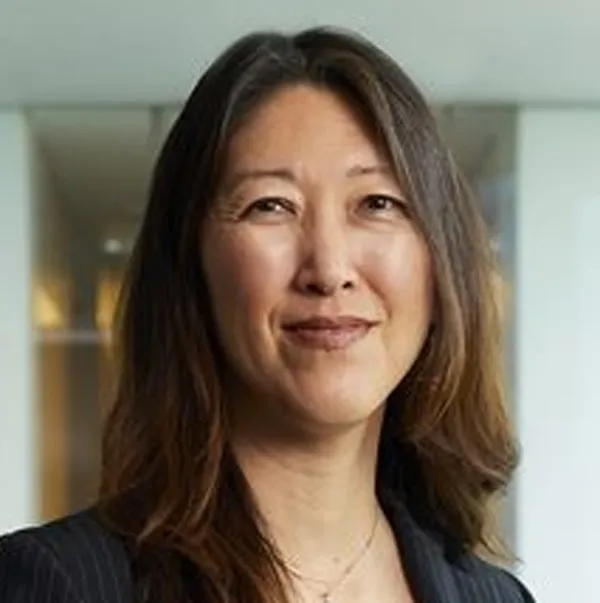The 2011 movie “Horrible Bosses” was so satisfying to watch because nothing is funnier than the truth. While the boss characters were over-the-top caricatures, many of us have no doubt felt the pain of their employees. Bad bosses often have common characteristics: They micromanage, demand authority, are unprepared, want their team to make them look good — and worst of all — are unprofessional.
To learn more about how bosses can avoid these pitfalls, we asked our 2022 PharmaVoice 100 community to provide their best leadership advice. Many of these inspiring leaders noted that it’s important to be humble; take time to listen — really listen — and be the last person to speak; to be authentic, as transparency is critical to building trust; and to hire people who are not only different from you, but smarter.
Several of our C-suite executives also recommended that to be successful in the long run, up-and-coming leaders need to be open to self-reflection, feedback and ongoing development — as curiosity is one of the best attributes of a great leader. In addition, they noted the pandemic has created a new appreciation for skills — empathy, compassion and giving —that were once considered soft but are now essential to being a well-rounded leader.
Here are more of the best leadership insights we captured during our recent PharmaVoice 100 Celebration event and in our feature story on the 2022 honorees.
Succeed through succession

“Great leaders should build robust organizations, which should become independent of their leader. Thus, plan for your succession, form teams that can operate without you and move on. For people in the life science industry, always ask ‘What is the one thing that I could do right now that would be most impactful for patients?’”
Giacomo Chiesi, head of global rare diseases, Chiesi Global Rare Diseases
Lead with your head and heart

“Success starts with caring. The best leaders are in it for the long game, not the quick wins. Whether guiding a team or clients, it comes down to caring about the people and their unique gifts. The business follows innately when you lead with head and heart. Take the time to create unforgettable moments for your team to show you truly care.”
Beth Crouse, CEO, 2nd Spark
Lean on life lessons
“If you take care of your team, they’ll take care of the rest. I have also been known to compare leadership lessons to motherhood. When my daughters tell me to let them do things on their own and ask me to trust them, I am reminded that good leaders leave their teams feeling empowered. When my daughters try to make me choose whose cookies are the best, I am reminded that the diverse contributions of team members need to be acknowledged and valued. When I discover how different my daughters are from me, as well as from each other, I am reminded that good leaders allow team members to lean into their strengths. When I find myself frustrated because I receive monosyllabic answers from my teenager, I am reminded that my team can’t read my mind, and I need to give direct and open feedback. And, as the specter of college grows closer and my daughters prepare to leave the nest, I am reminded that good leaders open doors and look for opportunities for team members to move on and move ahead.” Dr. Mary-Ann Etiebet, associated vice president, health equity, Merck, lead, Merck for Mothers, Merck & Co.
Relationships matter

“I cannot say enough about building trust with your stakeholders and becoming a valued partner. Everyone will eventually have to develop their own leadership style, but I tell each person to invest the time in developing the relationships with not only your superiors, but with your peers and your direct reports. These interactions are key to building the foundation of every relationship and turning them into a successful collaboration.”
Shanthi Ganeshan, senior vice president and global head, regulatory affairs and safety, Stemline Inc., a Menarini Group Company
Foster a socratic environment
“It is critical to uphold and brilliantly communicate with conviction a massive bold vision, maintaining a strong sense of purpose and being people-driven. In order to achieve transformative change, one must surround oneself with phenomenal people with high standards, virtues and expectations that contribute to the vision. To change the world, recognize you need to expect great performance from individuals and teams. That’s what we strive for, at the same time, one also must support and care for people and cultivate a flexible and supportive environment.
Last but not least, hiring and empowering for true diversity of style and background. From that, encouraging a socratic environment, much more complex than most companies, that encourages vigorous debate with lots of opinions and styles together with clear decision making and focus on brilliant execution.”
Simba Gill, CEO, Evelo Biosciences
Accept the challenge

“My advice is twofold. First, embrace differences by listening and making space for new perspectives and ideas. Second, when given a choice, choose the more difficult option and accept the challenge. It will be uncomfortable, and you may make more mistakes, but you will learn more and be a better leader because of it.”
Julie Kim, president, U.S. business unit and U.S. country head, Takeda
Get out of the comfort zone

“The best advice I can give is that every project, milestone or experience is a learning opportunity to shape you as a person, and as a leader. Looking back on the start of my career, I recall the commercialization of a promising new medicine that ultimately had to be withdrawn from market. While a drug withdrawal is often seen as a ‘failure,’ the actions taken shaped me as a leader. I had to remain thoughtful about how to approach challenges and setbacks, understanding that the ‘comfort zone’ is not always the best place to be in order to move forward. This is one experience that helped me grow into the professional I am today.”
Christopher Round, president, EMD Serono
Leave the power play behind
“Remove the idea that an effective boss has to lead from a place of power; instead lead from a place of openness, honesty, authenticity and clarity of expectation and purpose. The program and its vision are not just for any one person to own, it is the team’s to embrace and reach toward. Hire the right people with unique strengths that complement each other and then lean on them to deliver beyond your own capabilities. Every member of your team needs to know that they are truly valued, become really clear on your expectations, and how they contribute to the bigger picture. Trust must be built and then as their leader, be there to support them and help remove those hurdles so that they can focus and deliver to surpass your expectations.”
Dr. Tania Small, global medical affairs therapeutic area head of oncology and chair of the diversity, equity and inclusion R&D council, GSK
Be kind to yourself

“I have two key pieces of advice that I’ve learned through my career. First, be kind and compassionate to yourself. We are often our own worst critics. We should extend the same compassion and kindness to ourselves as we would for our best friend. Second, it’s not always just about achieving your next goal, but also about enjoying the journey. So often, we are focused on achieving the next milestone and quickly moving on to the next challenge. Most of our lives, we are climbing the mountain and very little of the time is standing on the summit. I would advise that we all enjoy the journey while also taking time to pause and celebrate the successes.”
Dr. John Tsai, former president of global drug development and chief medical officer, Novartis
Be open to feedback

“Feedback is a gift. We all need feedback to grow so receive both complimentary and constructive feedback with gratitude. None of us sees ourselves so we rely on others to help us see the blind spots and the strengths. I am grateful that I had mentors who pointed out my blind spots and helped me along my leadership journey. Of course, we always like being told what we do well, but we all have blinders, therefore 360 reviews are instructive and when received well can help refine leadership behaviors.”
Henrietta Ukwu, executive vice president and chief regulatory officer, Novavax




















